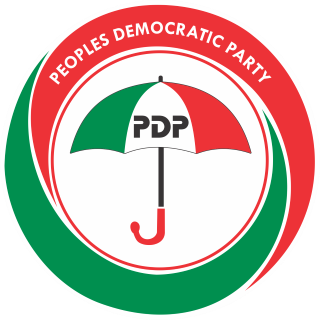
Williams Kayode
Nigeria’s political climate is heating up ahead of 2027 as the Peoples Democratic Party’s (PDP) decision to zone its presidential ticket to the South has sparked uproar in the North.
With President Bola Tinubu of the APC already enjoying strong backing for re-election, northern aspirants in both major parties may find themselves sidelined. Party leaders insist the decision aligns with Nigeria’s unwritten rotational power rule, but many in the North see betrayal.
The PDP’s National Executive Committee (NEC), at its 102nd meeting in Abuja, resolved that the South should produce the party’s next presidential candidate. This immediately drew fire from northern groups. The Joint Action Committee of Northern Youth Associations (JACON) described the move as unjust and a betrayal of the North’s loyalty to the PDP. The Gbenga Hashim Solidarity Movement (GHSM) called it unconstitutional and dangerous, while North-Central leaders said their zone will not accept continued marginalisation.
Arewa youth leader Salihu Danlami said PDP lost credibility when it abandoned zoning in 2023 to field Atiku Abubakar, warning that the new decision would deepen mistrust. A Kano PDP chieftain, Abduljabbar Rufai, admitted the move may weaken support in the region but argued that APC could also lose votes if Atiku runs on another platform.
Despite the discontent, southern leaders hailed the decision. Former PDP Deputy National Chairman, Chief Bode George, described critics as selfish and praised governors and NEC members for ending what he called “existential imbecility.” PDP Deputy National Legal Adviser Okechukwu Osuoha and Youth Leader Timothy Osadolor said the move would unify the party and restore its credibility.
Still, northern voices remain defiant. JACON warned of “grave consequences” for PDP in 2027, stressing that the North, despite being PDP’s electoral backbone since 1999, only held the presidency for two and a half years compared to 13 and a half years by the South. North-Central stakeholders also insisted the region deserves the presidency as a stabilising “bridge builder.”
Meanwhile, the African Democratic Congress (ADC) accused both APC and PDP of playing games with zoning two years before the polls, insisting ordinary Nigerians are being ignored. Its spokesman Bolaji Abdullahi suggested the PDP’s early decision was a ploy to lure heavyweights like Jonathan, Peter Obi, and Rotimi Amaechi back to its fold.
Obi, the 2023 Labour Party candidate, is said to be under pressure to return to the PDP, with consultations ongoing. His associates confirm discussions, noting that the zoning decision may shape his political future.
As the storm builds, PDP faces a critical test: whether it can balance regional interests and hold its base together or risk losing further ground in the North, handing APC or a third force the upper hand in 2027.
